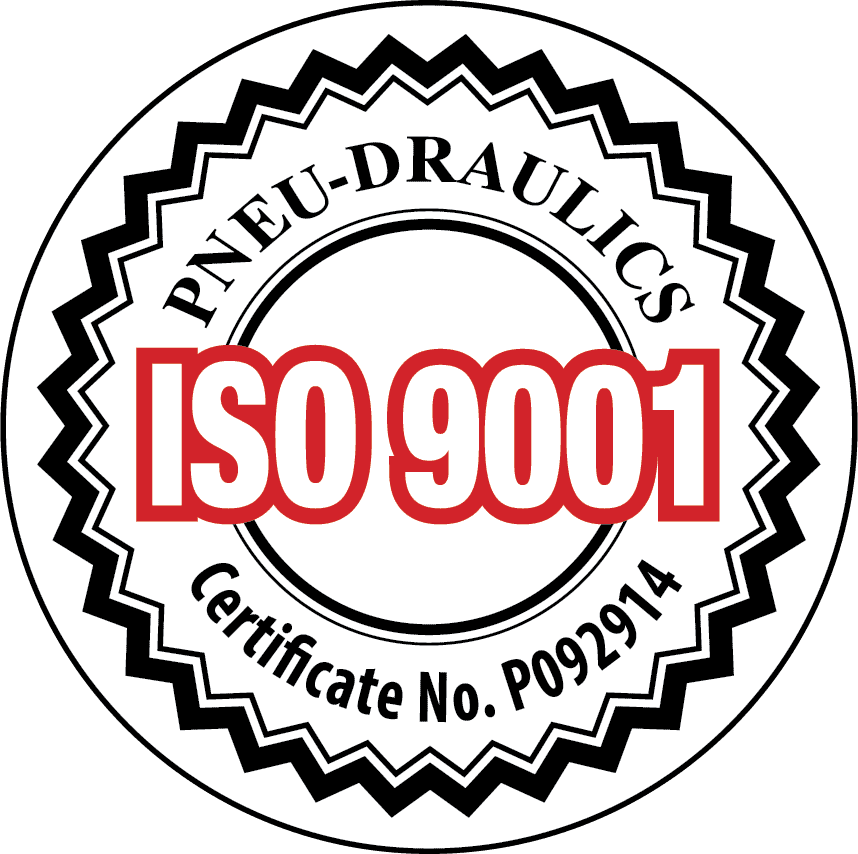At Pneu-Draulics, our industrial sealing services include custom-designing sealing solutions for unique applications in motion control, aerospace, OEM, MRO, and other industries. On this page, you can learn more about the most important sealing considerations and our approach to sealing design.
Sealing Considerations
Material Selection
When designing a gasket or seal, you’ll need to decide on either a dense or spongy material, as well as whether there are any closing forces. The specific application will dictate which type of material to use. For example, you would want to use a sponge cross-section for settings with minimal closing force, like door seals for small consumer products. Meanwhile, a dense seal would be better if your application needs more interference, such as with two surfaces bolted together for a commercial or industrial system.
Additionally, you must consider the environment that will house the sealing mechanism. For instance, consider whether the following factors are present:
- High or low temperatures
- Chemicals like harsh solvents
- Dynamic or static sealing requirements
- Ozone and UV exposure
One more consideration to keep in mind is the type of attachment needed. The gasket may be attached by compression fit or with the help of an adhesive. In other cases, clips, nails, staples, and other mechanical fasteners will influence the type of seal material.
Design Criteria
Elements that factor into the seal’s cross-sectional design include:
- How the seal will attach to the application or surface
- The size of the gap that the gasket must fit into and be expected to seal. Generally, effective compression ranges from 25-50%.
- The end use, such as preventing moisture leakage in marine environments or blocking out dust in aboveground applications
- The amount of tolerable closing force
- The load direction on the seal, as the weight applied can lead to significantly different results based on orientation
Designers can also reduce the total amount of load needed to achieve a sufficient seal. One way to do so is to modify the cross-section’s shape to correspond to the direction of the load. Another method involves adding hollow areas or holes to the gasket to minimize the load required for proper sealing.
Compression Fit
Consider the compression fit required for the gasket design and material. Dense seals, for instance, will need a compression of about 2% to 10% to secure the seal, while sponge seals need to maintain a 15% to 25% compression. However, the orientation of the load, the channel size, and other unique factors will determine what level of compression is required.
Adhesive Attachment
The attachment surface must have a width greater than 1/8″ to maintain secure attachment using adhesives. The adhesive should be placed on flat surfaces on the substrate and on the seal.
In general, transfer adhesives attach more effectively to curved surfaces than supported adhesives. However, supported adhesives are better at preventing stretching than transfer adhesives. Consider the overall PSA thickness to gauge the profile height.
Mechanical Seal Attachment
If you’re using mechanically attached seals, you will need to ensure the system facilitates the use of staples, nails, clips, or other mechanical devices. In the process, you must keep the attachment from negatively affecting the seal’s compression.
Sealing Design at Pneu-Draulics
As a reputable distributor of Parker Hannifin products, Pneu-Draulics works with Parker’s design engineers to provide our customers with the best sealing solutions possible. Our customers get the right seal with every order when they complete our design action request (DAR) form and send it to info@pneu-draulics.com.
Parker offers superior precision-engineered solutions for customers in the aerospace, industrial, and mobile industries. By carrying Parker’s high-quality products, Pneu-Draulics gives customers long-lasting, consistently reliable seals. We can also tailor solutions to your specific application requirements.
Get Reliable Industrial Sealing Services From Pneu-Draulics
Pneu-Draulics supplies customers with industry-standard Parker Hannifin products to help you overcome nearly any industrial sealing challenge. Regardless of your project’s complexity, we’ll work with you to determine the best approach for a strong, dependable seal. To learn more about our industrial sealing services and product offerings, contact us today. You may also request a quote for a custom solution.

